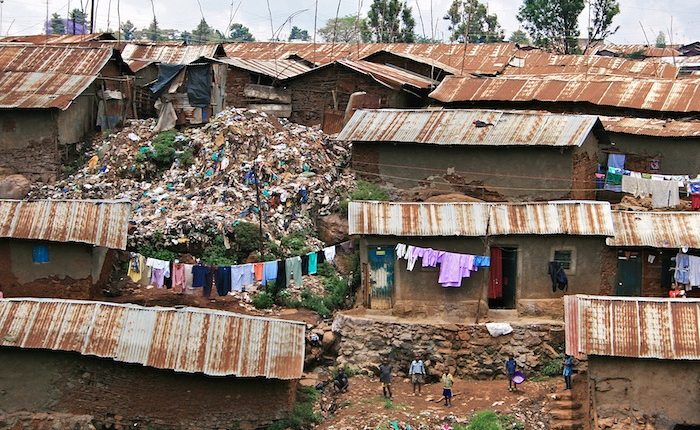Covid-19 Measures Mainly Affecting Adolescents in Nairobi’s Slums
As Kenya gets continually disturbed by the Covid-19 surge, the measures to curb it, like the closure of schools and staying at home still prevail. These can have adverse social and economic effects on vulnerable groups. One of these groups is young people, particularly those who live in Nairobi’s low-income neighborhoods.
Adolescents (aged 10 to 19) are in a crucial phase of life, making rapid transitions from childhood to adulthood. Critical shocks or negative events in this period of life, such as dropping out of school or getting pregnant, could negatively alter the course of their lives. Therefore, ensuring that COVID-19 does not lead to irreversible outcomes for adolescents is critical for Kenya for decades to come.
Recent research was conducted for over four days, to collect information on knowledge, attitudes, and perceived risk of infection from 1,022 adolescents living in five urban slums; Kibera, Huruma, Kariobangi, Dandora, and Mathare. These are Nairobi’s five main informal settlements. The average age of respondents was 16 years and 84% were female. These adolescents were part of ongoing cohorts that had been set up prior to COVID-19 to study the impact of different packages of interventions on adolescent health and well-being.
The collected data shows that adolescents are experiencing great stress and anxiety due to the control measures put in place. This is most likely due to school closures and the economic setbacks and recession experienced by their households. People in low-income areas are starting to struggle: many are missing meals, have lost work, and say that the cost of living is close to being unaffordable.
This group urgently needs social protection measures like food distribution, cash transfers, and access to health services.
Stress and anxiety
The mental health of adolescents is also seeing a reasonable decline. It appears that younger adolescents are more worried about the virus itself whereas older adolescents are more concerned about the social and economic impacts of the pandemic.
It is reported that at least one million Kenyans have lost their jobs, or have been put on indefinite unpaid leave, since the start of the pandemic. In Nairobi’s informal settlements, 39% of households reported a complete loss of income and another 48% lost part of their income.
Almost half of the adolescents (46%) reported having felt down, depressed, or hopeless at least once in the past two weeks. This was more frequent the older the respondent was. The vast majority of respondents (81%) said they felt threatened, concerned, scared, or anxious because of COVID-19. Most respondents (87%) also worry that they or their loved ones will be infected with COVID-19.
Added to this is uncertainty over their schooling
The government announced that all schools will remain closed until next January because of the coronavirus pandemic. Final year exams that would have taken place in October and November, have been canceled too.
This has exerted new pressure on these young people who were already struggling to do their studies. During the closures, 87% of the respondents said they were in school when the pandemic hit and was trying to learn from home. Yet, 20% were not provided with lessons from their schools while 40% could not access the online lessons provided. It is also important to note that there is a gender gap in digital access as boys were significantly more likely to use a computer or tablet to access materials.
With the current school closure, 89% of adolescents think they will return when they reopen. But of those who reported not being sure of returning to school, 59% said it was because of difficulty in paying school fees. While education is free at the government primary schools, there are extra costs for things like exams, uniforms, and transport.
Older adolescent girls may experience greater challenges returning to the school since Secondary education is not free. Girls were less confident they would return than boys and there were fears that families may prioritize sending boys to school or that girls may be pregnant by the time schools reopen.
Adolescents have also changed their eating habits. Of those respondents who reported skipping meals, 78% were eating less or skipping meals more often than before the COVID-19 pandemic began. This is because households have less money and the cost of food has gone up. In addition, 74% are no longer receiving the daily free meal at school that they were prior to COVID-19.
In addition to this, there are gender differences emerging in how adolescents are experiencing pandemic. There appears to be more pressure on boys to go out and work or look for income, while girls are picking up more of the increased domestic burden – reinforcing traditional gender norms and putting them at increased risk of sexual exploitation to meet their needs.
Solutions
As school closures are prolonged, adolescents will need access to resources to continue learning. Enhancing television and radio-based learning may be more equitable due to the gender digital divide.
Adolescents expressed concern that their families will not be in a position to pay school fees when schools reopen, girls more so than boys. Policymakers must account for the economic hardship caused by COVID-19 and not keep them out of school if households cannot afford to send them back to school. This is particularly important for girls in secondary school who may be at higher risk of not re-enrolling. This may require changes to the country’s education budget for the 2021 school year beyond resources for school infrastructure.
Finally, research reveals that there are small pockets of highly vulnerable adolescents that are forced to work, engage in transactional sex, or are experiencing violence. These adolescents are in need of immediate social protection and assistance. While the numbers are small, these extreme outcomes should be monitored and addressed as they are likely to rise with prolonged social and economic hardship.



Comments are closed.